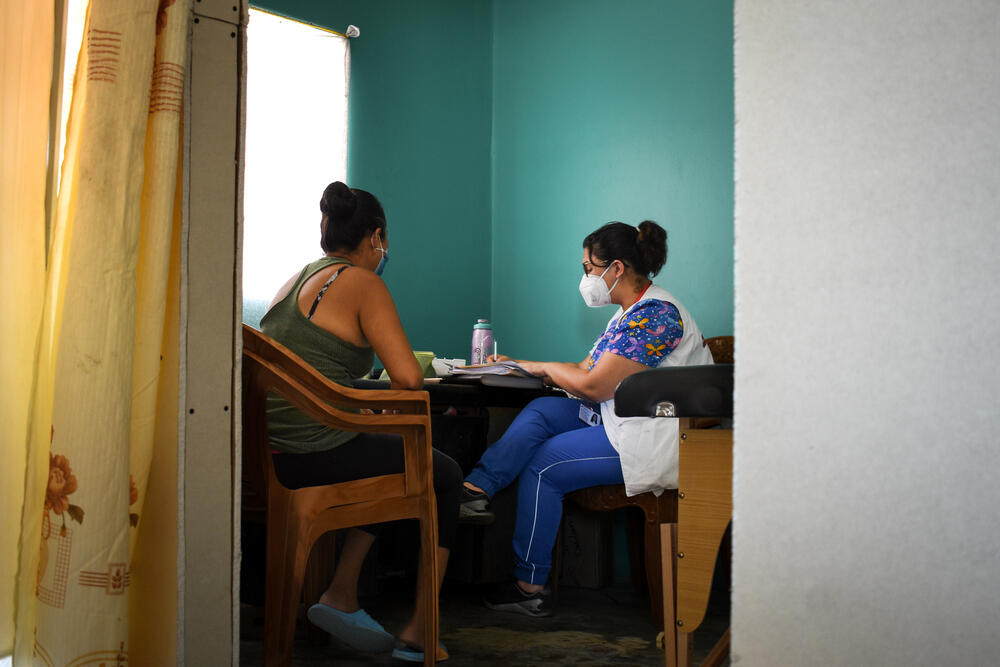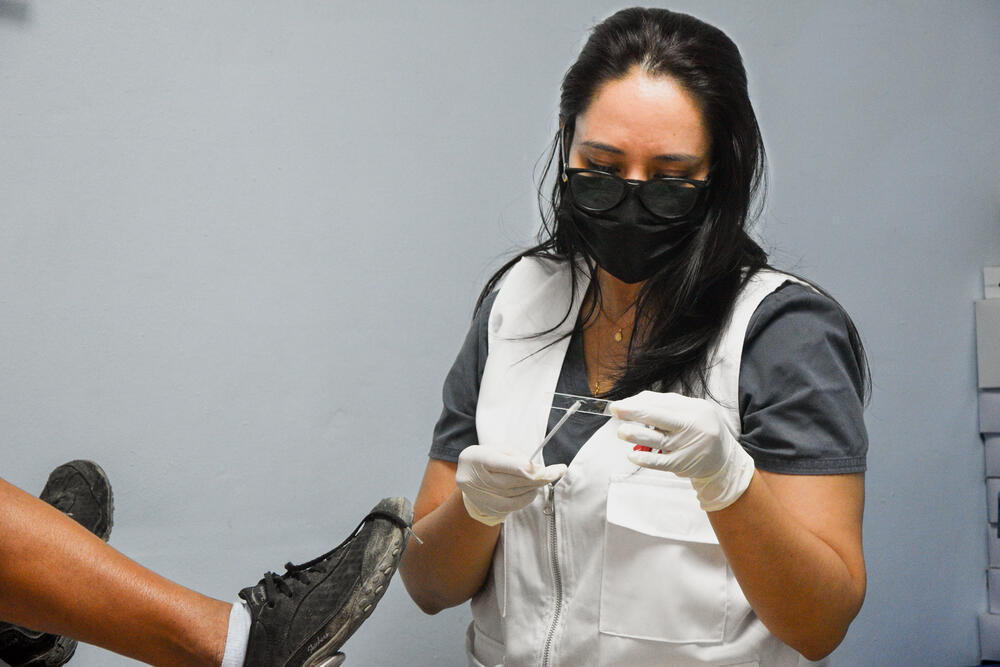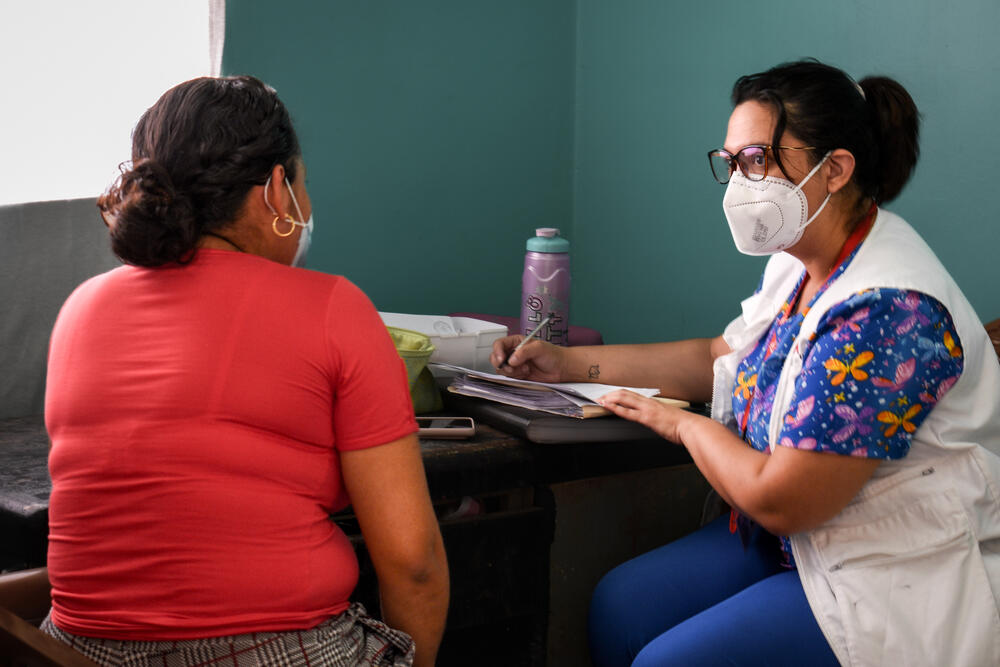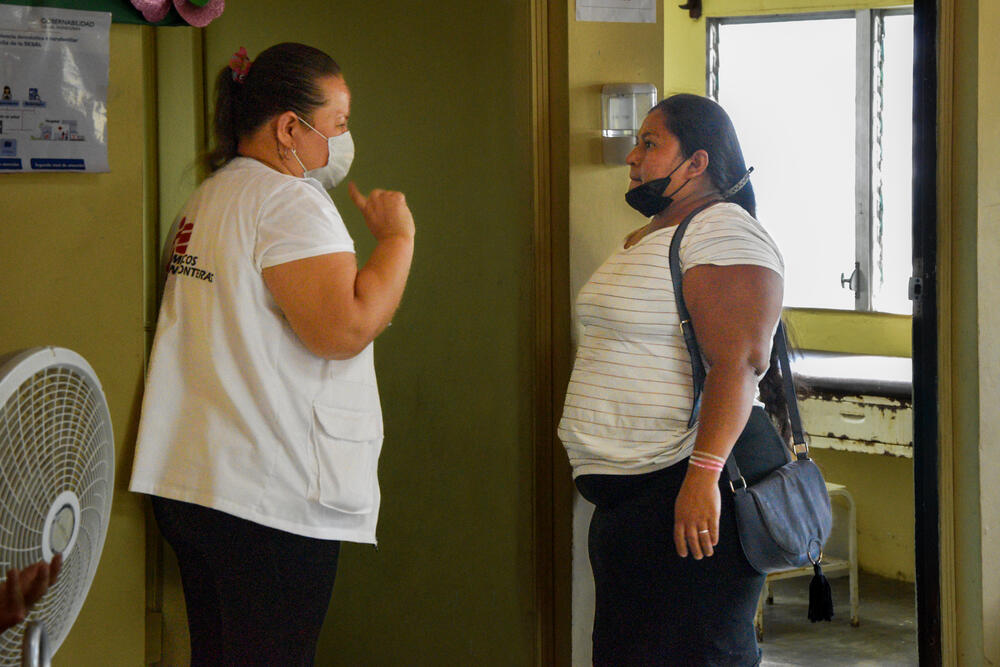Testing for cervical cancer: MSF patients take control of their sexual health
World Cervical Cancer Prevention Day 2023
24 March 2023
For the World Health Organization (WHO), cervical cancer is a public health problem that affects many women. This cancer is mostly caused by human papillomavirus or HPV. However, it is one of the cancers that can be prevented from a very early age, through the HPV vaccine. And it can be diagnosed early, for example, through cytology. On World Cervical Cancer Prevention Day, learn from the testimonies of MSF patients in Honduras on their experiences and fears regarding cytology.
"I have not heard of the virus before."
"To be honest, this is the first time I am getting a Pap test and I am scared. I looked up the procedure online and found out what it detects because a friend had mentioned diseases and it piqued my curiosity,” said Lorena*, a 30-year-old woman and mother of two who is getting her first cytology or Pap test at the La Bueso health centre.
In this small building next to a dusty road, a mobile team from Doctors Without Borders/Médecins Sans Frontières (MSF) is performing Pap tests [also called a cervical cytology] for the early detection of the human papillomavirus (HPV) and prevention of cervical cancer, as well as prenatal and postnatal care, and family planning services for over 30 women in this rural community of northern Honduras.
“Today, I came because my husband has been dealing with an infection for several days. He went to the urologist and they recommended that I also see a gynaecologist. I went to her to check if I have something and she recommended that I get a cytology test,” she said.
The MSF team works out of this health centre once a week. They invite women from the surrounding areas to come in for a test, many of whom do not have access to transportation or another health care centre. Some women travel by bike, bus, or mototaxis (tuk tuk). Today's group comprises women between the ages of 20 and 50. Most of them say that they have never had a cytology before because they are not very familiar with what this procedure is and what it detects. The MSF team informs them beforehand about what a cytology test is, about HPV, and other sexual and reproductive health issues.
"My mother recommended that I get a cytology"
On the other end of the department of Cortés, at its westernmost tip, isolated at the foot of the Merendón mountain range, lies La Jutosa, a small population whose health centre does not have the necessary personnel to perform cytologies on women in this area.
Marcela*, age 19, talks about her fear of getting a Pap test today. She hasn't had the procedure done in two years and is afraid that they will find a disease related to the discomfort she has been experiencing for some time.
"The first time I got the test was during my first pregnancy, which was two years ago. I was treated at the Maternal and Child Clinic (CMI) in Choloma. It was a cousin who recommended that I go to the clinic, and this is where I had my first medical record with MSF. At the CMI, I talked about sexual and reproductive health and sexually transmitted diseases.
I have a partner, and my mother always advised me to get checked. The church also always advises us to go to the doctor. For several days I have been feeling some discomfort and pain, so I came in for this check-up because it has been several years since the last time I had one. I know that many women do not come because they do not have money, do not have much time, there are no medications, and the results take a long time to be delivered.
Sometimes women neglect themselves, let themselves be distracted by men, and they do not always want to take responsibility. I believe people know about the importance of safe sex, my friends are aware of cytology, and my mother is aware, but not everyone does it because, without work, it is too expensive.
"I have six children, and this is the first time I will have a cytology"
Rocío*, age 33, also came to this same centre. She came for a general consultation and wanted to take advantage of it to have cytology done. At her young age, she said she does not know what HPV is or that cervical cancer can be prevented through these exams. Despite having six children, she has never had cytology.
"I was really only coming for a general consultation, but a lady told me they were doing cytologies and I wanted to take advantage of it. The only thing is that I feel scared and embarrassed because I have never had one before. I am worried because, for a few weeks, I have been experiencing pain in my abdomen, and it's strange because my husband left for the United States four months ago, so I have not had sexual relations. Honestly, I had not heard of the virus before."
*These names have been changed for the privacy of the users.




